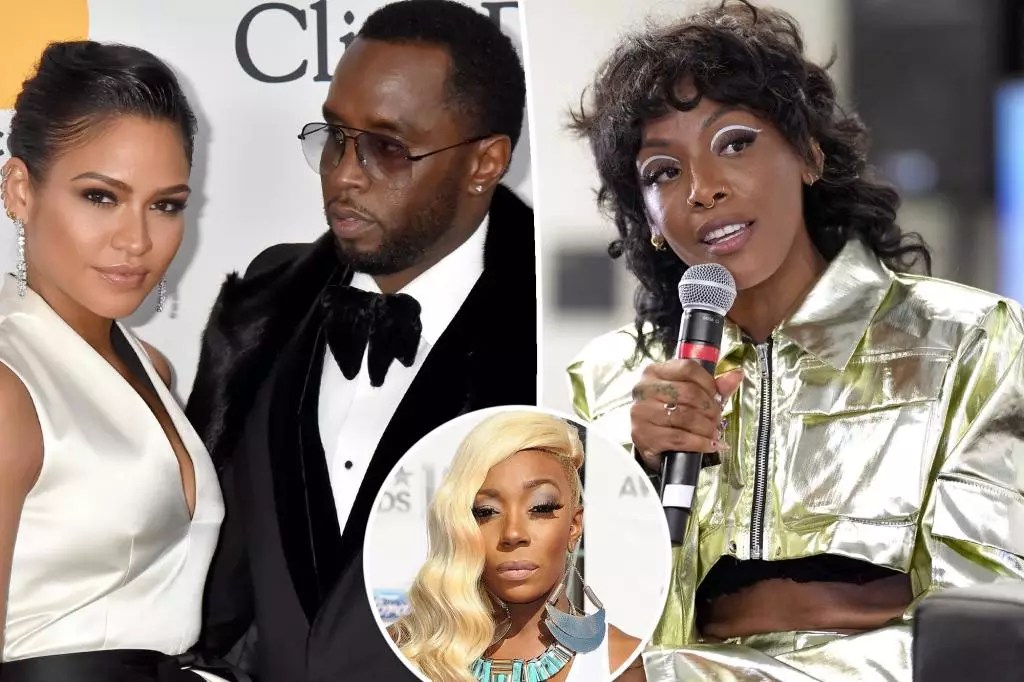In the world of entertainment, allegations of abuse and misconduct often take center stage, drawing public scrutiny and media attention. Recently, Kalenna Harper, a former member of Diddy’s ensemble group Dirty Money, found herself embroiled in a swirling controversy following Dawn Richards’ lawsuit against Sean “Diddy” Combs. As the legal landscape continues to evolve, Harper has chosen to publicly distance herself from the troubling claims, asserting her own truth while simultaneously acknowledging Richards’ experience. The situation highlights not only the personal ramifications for those involved but also broader societal implications regarding accountability in relationships and workplaces.
Amidst the uproar surrounding the allegations made by Richards, Harper released a statement aimed at clarifying her position. In her remarks, she emphasized her lack of knowledge regarding any alleged abuse directed towards Cassie Ventura, Diddy’s former girlfriend. Harper articulated, “While I fully respect Dawn’s right to recount her experiences, I want to emphasize that her account reflects her personal perspective and should not be interpreted as a universal truth applicable to everyone involved.” This sentiment underscores a common scenario in such cases: the disparity between individual experiences and perceptions.
While Richards detailed various claims of abuse, Harper’s perspective diverges significantly. She specifically mentions that many of the incidents Richards described do not resonate with her personal encounters during her tenure with Diddy. This distinction raises questions about the complexities of interpersonal relationships, loyalty, and the subjective nature of trauma, which can vary widely among individuals who may have witnessed or participated in similar environments.
Dawn Richards’ lawsuit paints a disturbing picture of physical and sexual abuse, claiming that she, alongside Harper, witnessed Diddy’s aggressive treatment of Cassie Ventura. According to the allegations, Diddy’s behavior included verbal threats and violent outbursts that left a lasting impact on those who observed these encounters. Reports of physical altercations, including incidents where Diddy allegedly threw household items and even resorted to physical violence, paint a grim picture of the dynamics that may have played out behind closed doors.
Richards’ assertion that the two artists urged Ventura to leave an abusive relationship highlights a significant aspect of the conversation surrounding domestic abuse: the role of bystanders. It raises questions about the actions— or inactions— of individuals within abusive environments. In an industry where power dynamics can often overshadow personal well-being, the complexities faced by those who witness abuse becomes a topic of critical importance.
Diddy is now facing legal challenges from multiple individuals, all alleging various forms of sexual abuse and misconduct. While the entertainment industry has seen numerous high-profile allegations in recent years, the cumulative weight of these claims against Diddy serves to shine a light on systemic issues surrounding power, privilege, and abuse in a myriad of relationships. The response to Richards’ allegations and Harper’s subsequent distancing further illustrates the challenges individuals face when navigating accusations that may not align with their own experiences.
Furthermore, the timing of Richards’ lawsuit— coinciding with her album release— invites criticism surrounding motives in such alleging cases. Would financial gain be the main driving force behind these claims, or is it a genuine quest for justice and accountability? This duality presents a complex portrait of victim questioning that is often amplified in public discourse. Such skepticism can make it difficult for genuine victims to be heard and believed.
Harper’s careful navigation of this contentious landscape allows us to consider varying narratives within the same environment. It serves as a reminder that personal truths can diverge significantly, leaving room for interpretation and debate. As Diddy faces the mounting weight of allegations and legal scrutiny, the broader discussion surrounding accountability, justice, and personal experiences in relationships takes center stage. The ongoing conversation about abuse reflects a critical moment in the cultural consciousness, pushing for greater transparency and accountability within the entertainment industry. As we continue to witness such events unfold, the importance of listening to voices— both amplifying and distancing themselves— is crucial in understanding the multilayered impact of abuse and the path towards healing.


Leave a Reply